The Emotional Benefits of Preschool: Helping Children Develop Confidence and Resilience
Preschool is an important time for children to develop emotionally, as they learn to navigate their feelings, develop relationships, and form a sense of self. Emotional development in preschool can have a significant impact on a child’s well-being throughout their life. It is essential to prioritize emotional development in preschool to set children up for success in school, relationships, and beyond.
The emotional benefits of preschool are numerous. When children are taught how to recognize and manage their emotions, they develop a sense of self-awareness and self-esteem. They learn to understand their feelings and how to express them appropriately, which helps them build healthy relationships with peers and adults. Additionally, children who have developed strong emotional intelligence are more resilient and better equipped to handle stress and challenges.
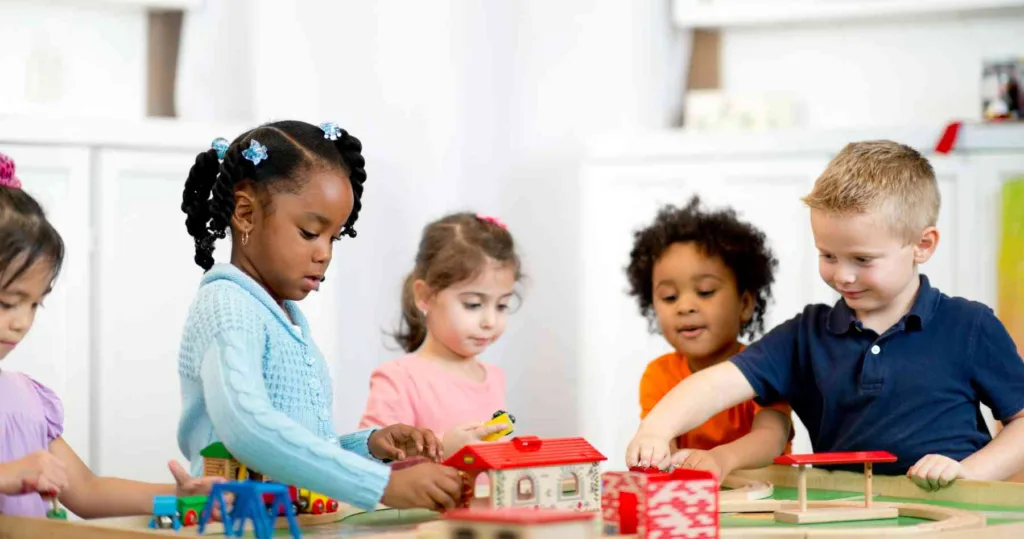
Building Self-Esteem in Preschool
Self-esteem is a crucial component of emotional development in preschool. Children who feel good about themselves are more likely to engage in positive behaviors, take risks, and try new things. Building self-esteem in preschool involves providing children with opportunities to succeed, recognizing and praising their efforts, and giving them positive feedback. Encouraging children to take on new challenges and recognizing their progress can help them build a sense of competency and self-worth.
There are several strategies that preschool teachers and parents can use to build self-esteem in young children. These include providing positive reinforcement, setting achievable goals, and encouraging autonomy. Preschoolers should be praised for their efforts, not just their achievements, and given the opportunity to make decisions and take ownership of their learning. When children feel capable and valued, they are more likely to develop a positive self-image.
Coping Skills in Preschool
Coping skills are another important aspect of emotional development in preschool. Children who have learned healthy coping strategies are better equipped to manage stress and handle difficult emotions. Coping skills can include deep breathing, mindfulness, positive self-talk, and problem-solving. These skills help children regulate their emotions and build resilience.
Preschoolers can learn coping skills through modeling and direct instruction. Teachers and parents can model healthy coping strategies when they are stressed or upset, and encourage children to try these strategies when they are feeling overwhelmed. Direct instruction can involve teaching children specific coping strategies, such as deep breathing or positive self-talk, and practicing these strategies regularly. When children have a variety of coping skills to draw on, they are better able to manage their emotions and handle difficult situations.
Get In touch
Leave us a message
4 Claret Road, Table View, 7441
(021) 556 4146
office@applebeekids.com
Sense of Belonging in Preschool
A sense of belonging is essential for emotional development in preschool. Children who feel like they belong in their classroom and have positive relationships with their peers and teachers are more likely to feel confident and secure. Creating a sense of belonging in the preschool classroom involves creating a welcoming environment, encouraging positive relationships, and promoting inclusivity.
Teachers can create a welcoming environment by decorating the classroom with familiar and comforting items, such as family photos or stuffed animals. Encouraging positive relationships involves facilitating activities that promote teamwork and cooperation, as well as celebrating each child’s unique qualities. Promoting inclusivity involves recognizing and valuing diversity in the classroom, and creating a safe space for all children to learn and grow.
Mindfulness Practices for Emotional Development
Mindfulness practices are a powerful tool for promoting emotional development in preschool. Mindfulness involves being present in the moment and observing thoughts and feelings without judgment. When children practice mindfulness, they learn to regulate their emotions, reduce stress, and improve their focus and concentration.
Preschool teachers can incorporate mindfulness practices into the daily routine, such as through breathing exercises or guided meditation. Simple mindfulness activities, such as mindful breathing or mindful listening, can help children develop the skills they need to manage their emotions and respond to situations with more awareness and intention.
Social-Emotional Learning Programs in Preschool
Social-emotional learning (SEL) programs are a comprehensive approach to promoting emotional development in preschool. SEL programs teach children important skills such as self-awareness, self-management, social awareness, relationship skills, and responsible decision-making. These skills help children build strong relationships, manage their emotions, and make positive choices.
There are several popular social-emotional learning programs available for preschoolers, such as the PATHS program and the Second Step program. These programs provide teachers with the tools and resources they need to teach important social-emotional skills in a fun and engaging way.
In conclusion, emotional development in preschool is essential for children’s long-term success and well-being. Building self-esteem, teaching coping skills, fostering a sense of belonging, incorporating mindfulness practices, and using social-emotional learning programs are all effective strategies for promoting emotional development in young children. By prioritizing emotional development in preschool, we can help children develop the skills they need to thrive in school and in life.
Social-emotional skills are important for preschoolers to develop as they lay the foundation for positive relationships, effective communication, and healthy emotional regulation. Here are somesocial-emotional skills preschool examples:
Emotion Recognition: Preschoolers can learn to recognize and label different emotions in themselves and others. For example, they can learn to identify when they are feeling happy, sad, or angry and use words to express their emotions.
Empathy: Preschoolers can learn to understand and empathize with others’ emotions. For example, they can learn to show kindness to a friend who is feeling sad or upset.
Self-Regulation: Preschoolers can learn to manage their own emotions and behaviors. For example, they can learn to take deep breaths or count to ten when they feel angry or frustrated.
Conflict Resolution: Preschoolers can learn to resolve conflicts peacefully and respectfully. For example, they can learn to express their feelings in a calm manner and listen to others’ perspectives.
Communication: Preschoolers can learn to communicate effectively with others. For example, they can learn to express their thoughts and feelings clearly and listen actively to others.
By incorporating these social-emotional skills into their curriculum, preschools can help children develop the emotional intelligence they need to succeed in school and in life.
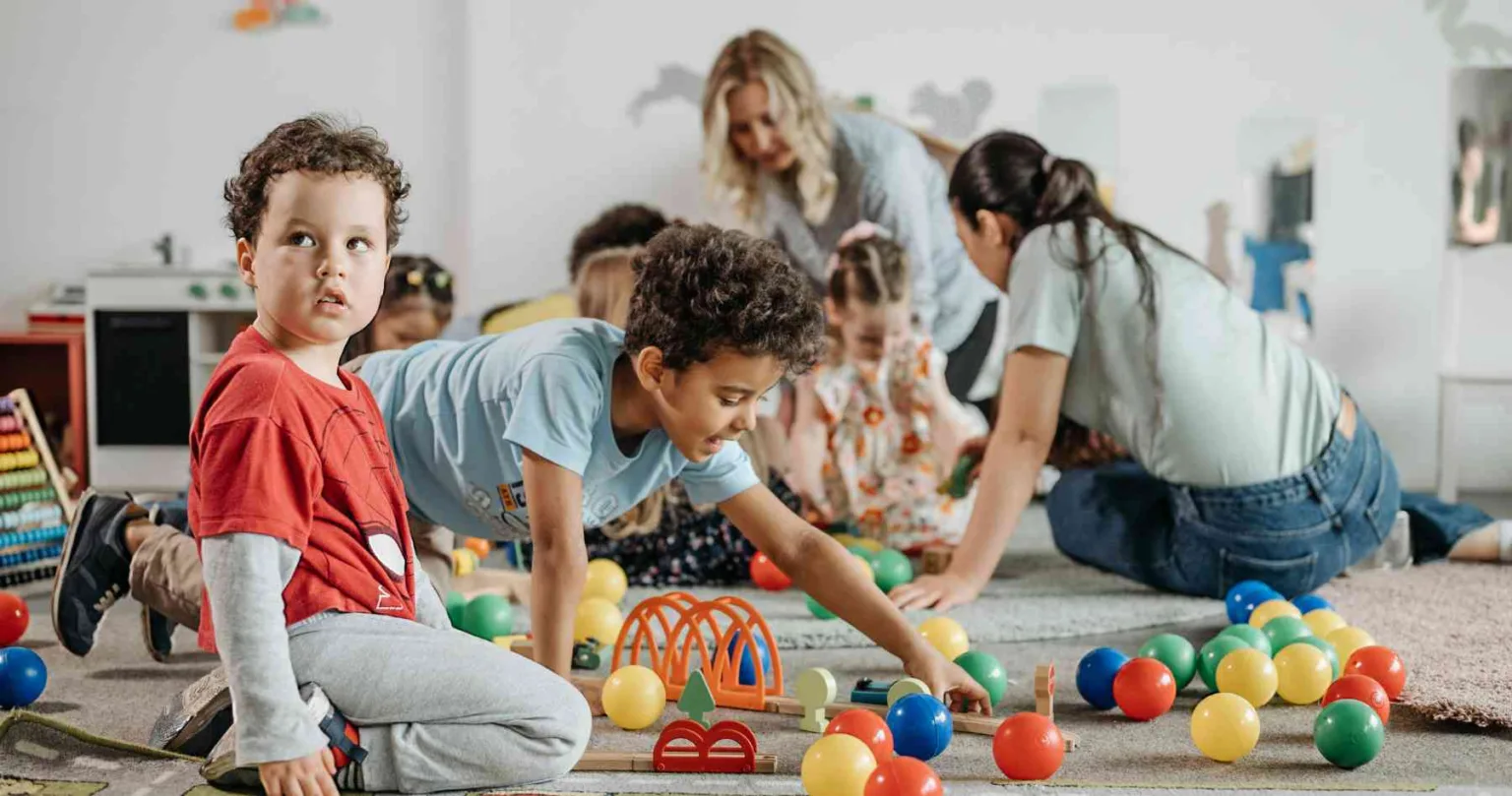
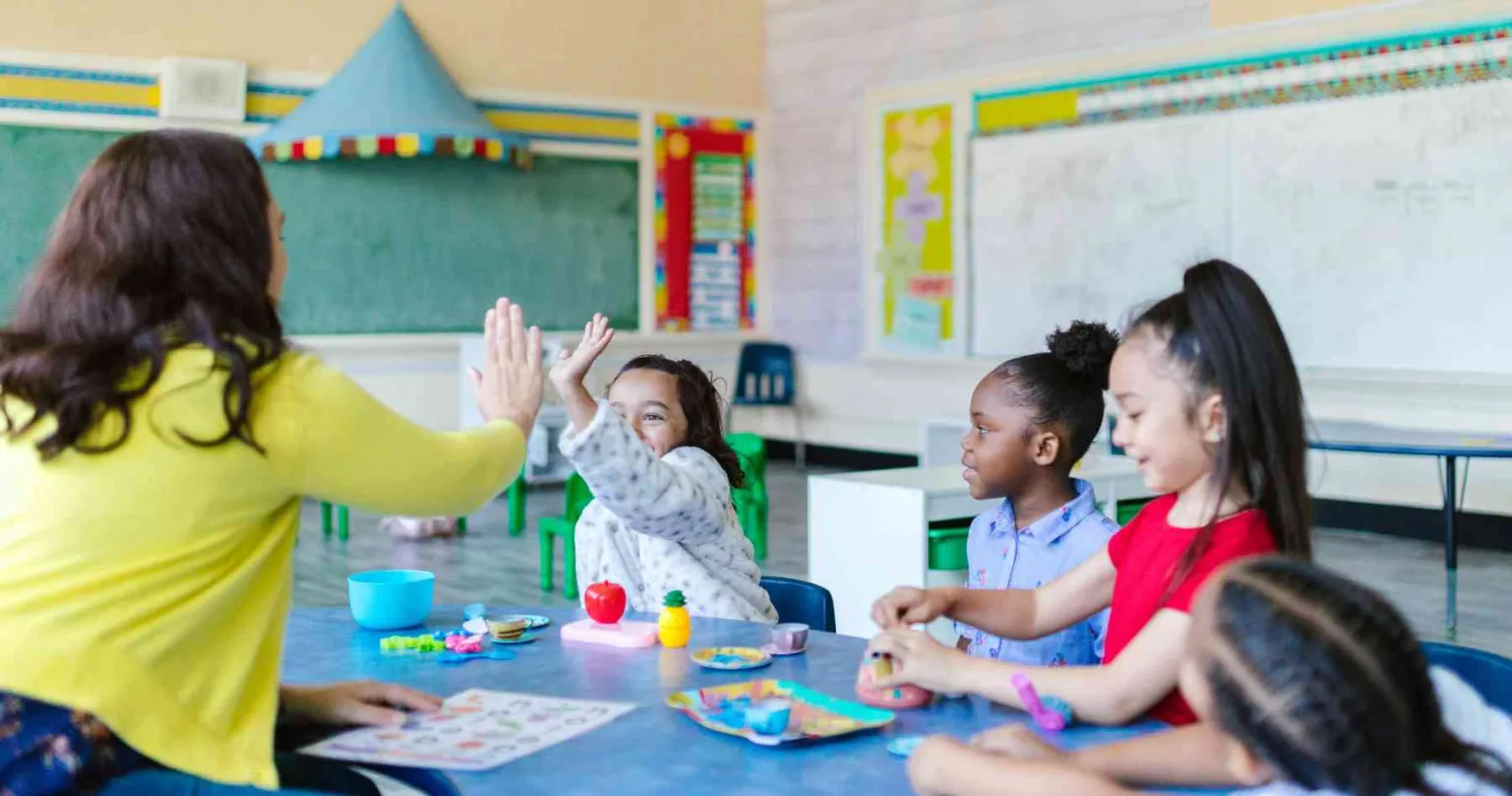
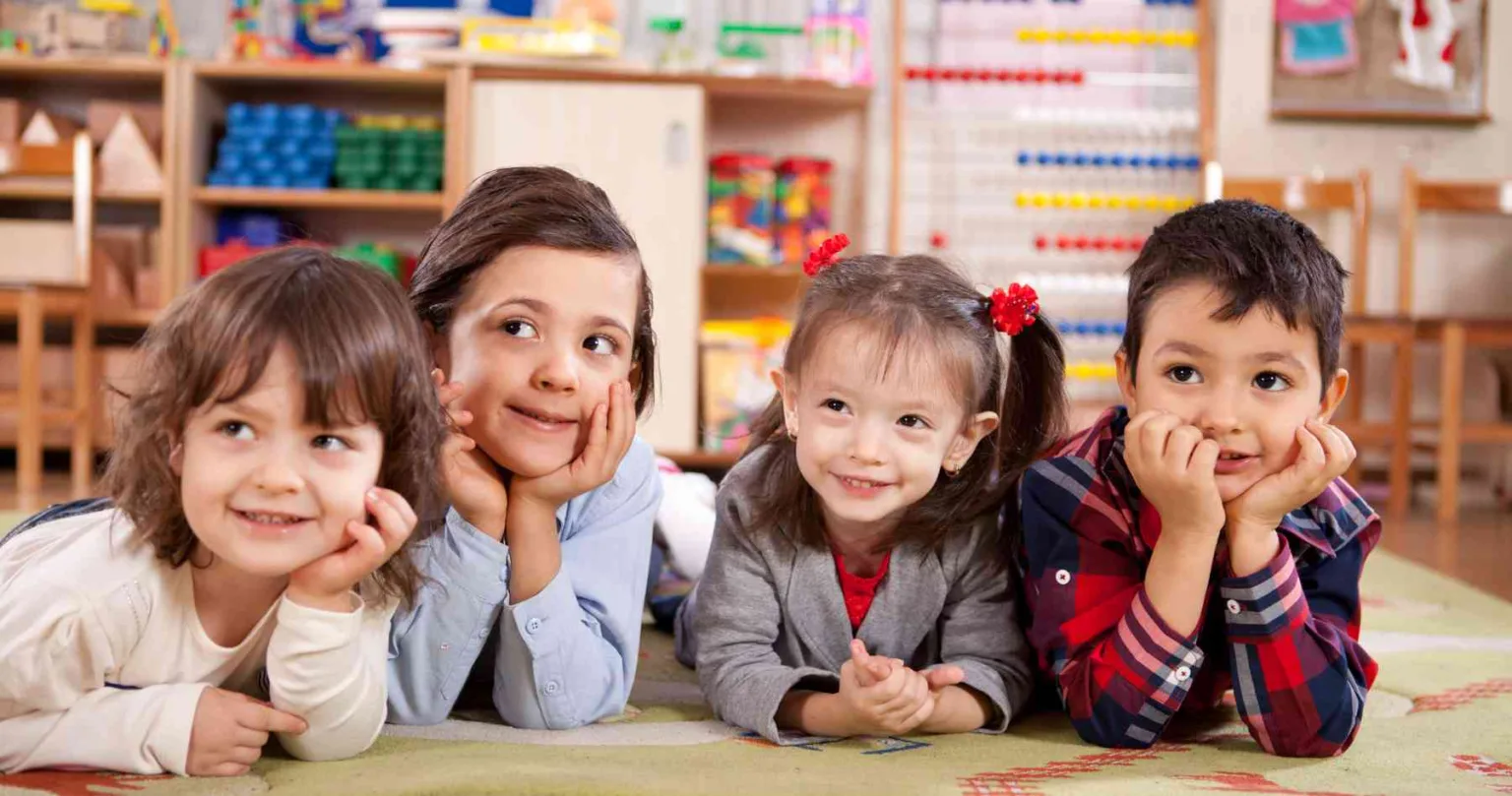
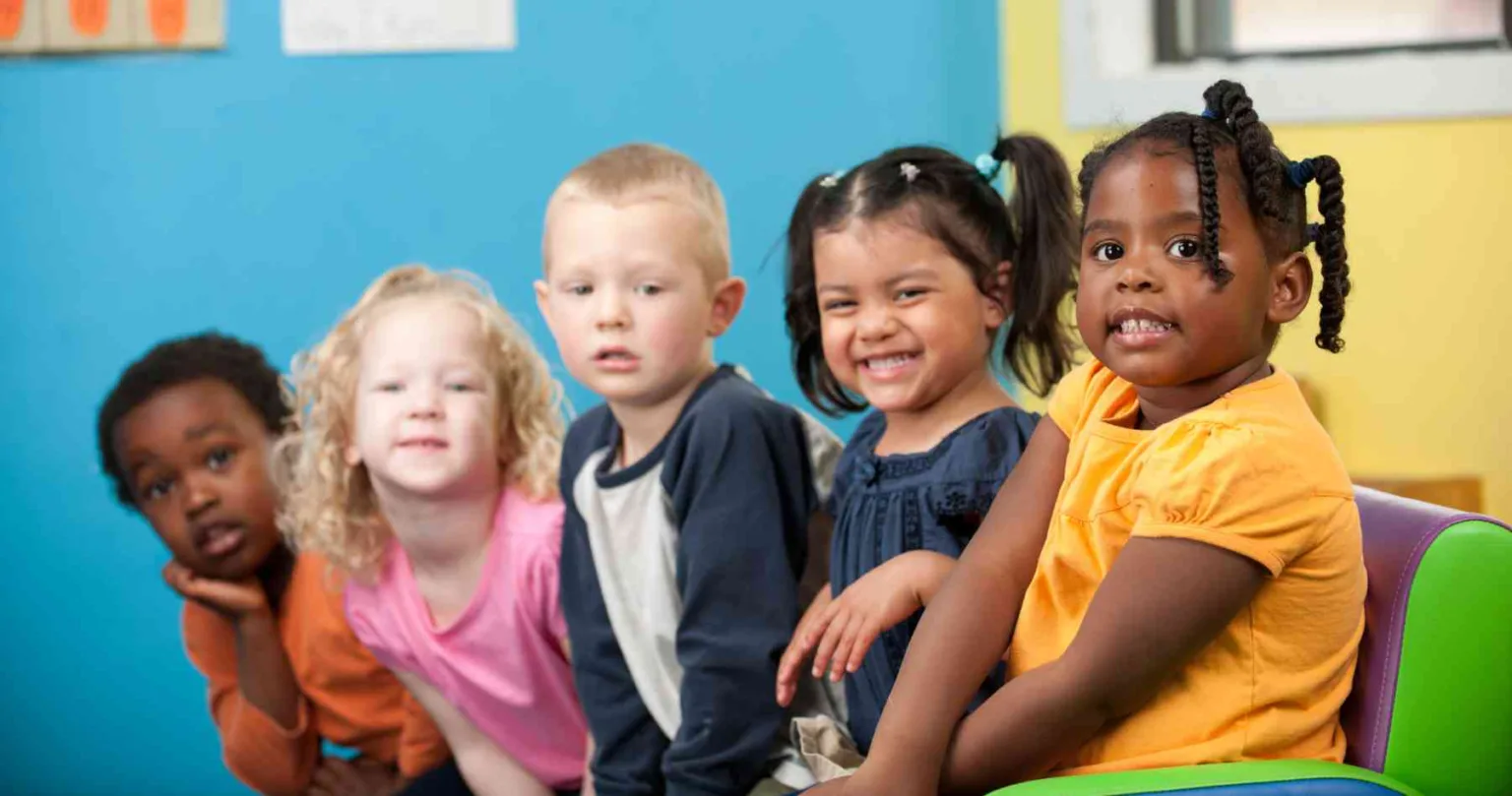
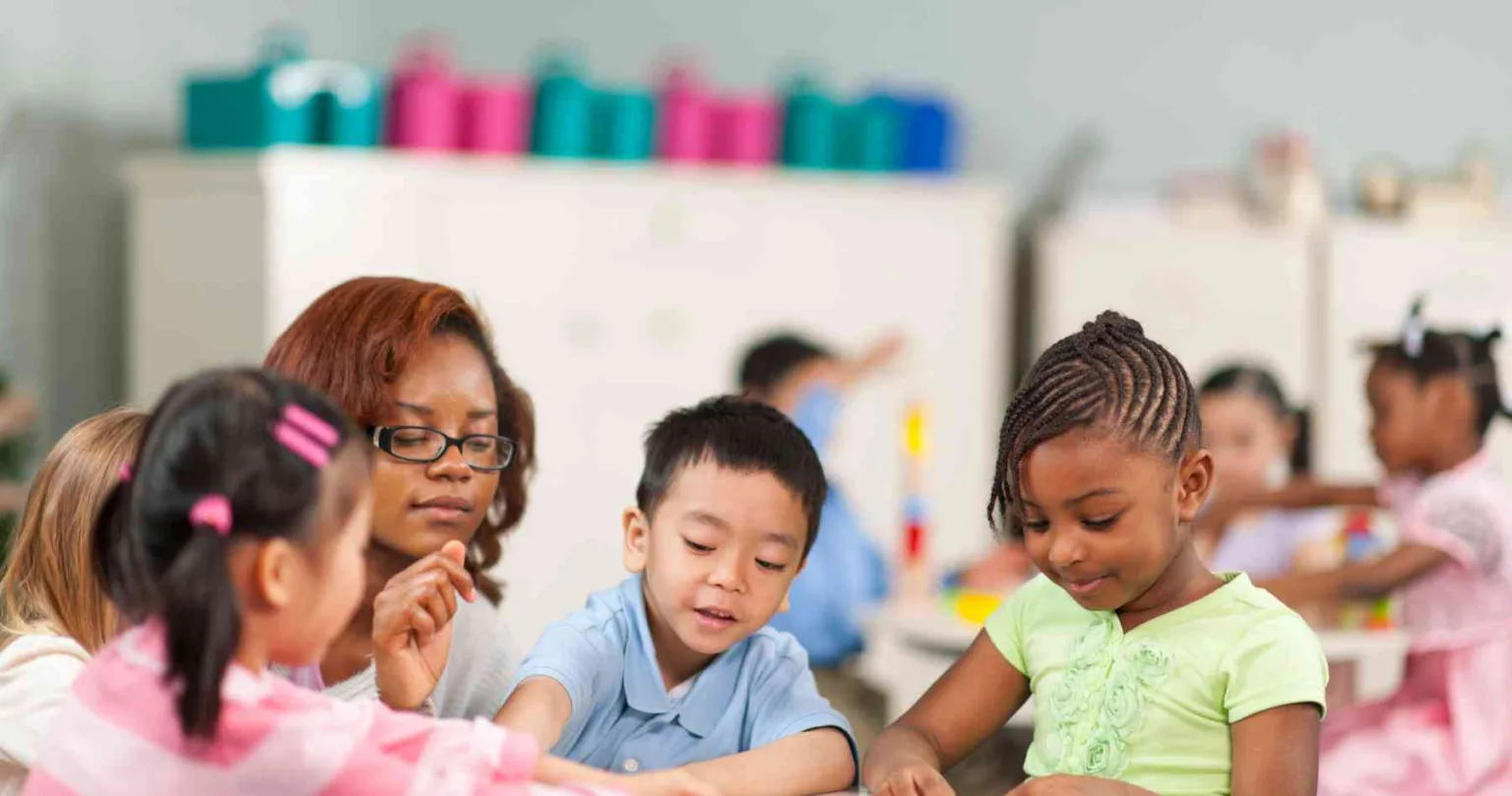
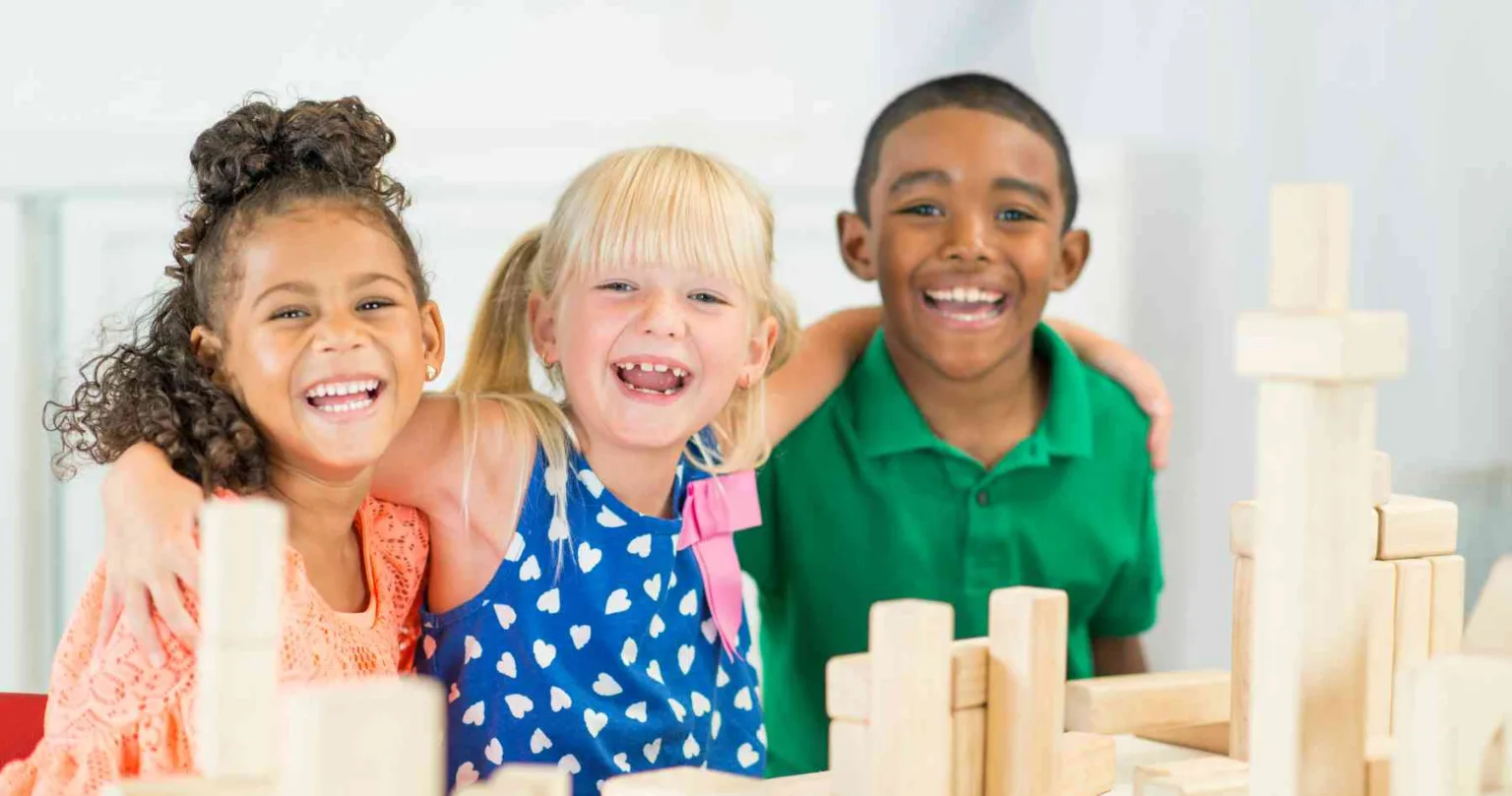
Social-emotional development is critical for preschoolers as it sets the foundation for their future emotional well-being and success in life. Here is social emotional development: preschool checklist:
Shows empathy towards others: Preschoolers should be able to recognize and respond to others’ emotions appropriately. They should show empathy towards their peers and be able to comfort others when they are upset.
Demonstrates self-regulation: Preschoolers should be able to manage their own emotions and behaviors. They should be able to calm themselves down when upset and follow classroom rules.
Communicates effectively: Preschoolers should be able to express their thoughts and feelings clearly and listen actively to others. They should be able to communicate their needs and wants effectively.
Forms positive relationships: Preschoolers should be able to form positive relationships with peers and adults. They should be able to work cooperatively with others and resolve conflicts peacefully.
Develops a positive self-concept: Preschoolers should have a positive self-concept and self-esteem. They should be confident in their abilities and feel good about themselves.
Demonstrates curiosity and eagerness to learn: Preschoolers should be curious about the world around them and eager to learn new things. They should enjoy exploring and experimenting with new ideas and concepts.
By monitoring these social-emotional milestones, parents and educators can help support preschoolers’ emotional development and set them up for future success.
ExcellentBased on 28 reviews Trustindex verifies that the original source of the review is Google.
Trustindex verifies that the original source of the review is Google. Pieter Kotze2022-03-11Great pre-primary school in Table View, it has been there for many years and we are now on the verge of sending the 2nd generation there and although they have been around for years, the staff are current and up to date with the latest in childcare and early childhood education, peace of mind for sure...Trustindex verifies that the original source of the review is Google.
Pieter Kotze2022-03-11Great pre-primary school in Table View, it has been there for many years and we are now on the verge of sending the 2nd generation there and although they have been around for years, the staff are current and up to date with the latest in childcare and early childhood education, peace of mind for sure...Trustindex verifies that the original source of the review is Google. Gareth Bolt2021-08-20Jackie,Maude and Applebee team look after our little boy so wonderfully!Trustindex verifies that the original source of the review is Google.
Gareth Bolt2021-08-20Jackie,Maude and Applebee team look after our little boy so wonderfully!Trustindex verifies that the original source of the review is Google. Shakurah Hackley2021-08-20My son loves his teachers. They care for our kids and go the extra mile.Trustindex verifies that the original source of the review is Google.
Shakurah Hackley2021-08-20My son loves his teachers. They care for our kids and go the extra mile.Trustindex verifies that the original source of the review is Google. Nolu Mandindi2021-08-19My daughter been a student since 2019, her brother joined her in 2021, we couldn't be happier with the professionalism shown by the staff. The constant feedback from teachers on progress is on point.
Nolu Mandindi2021-08-19My daughter been a student since 2019, her brother joined her in 2021, we couldn't be happier with the professionalism shown by the staff. The constant feedback from teachers on progress is on point.
Furthermore, parents can also play an active role in supporting their children’s emotional development in preschool. By providing a nurturing home environment, offering consistent routines, and promoting positive relationships, parents can help their children develop the emotional skills they need to succeed in school and in life.
It’s important for parents to communicate regularly with their child’s teacher and to stay involved in their child’s education. By working together with teachers, parents can ensure that their child is receiving the emotional support they need to thrive in preschool and beyond.
In conclusion, emotional development is a critical component of preschool education. By promoting self-esteem, teaching coping skills, fostering a sense of belonging, incorporating mindfulness practices, and using social-emotional learning programs, teachers and parents can help young children develop the emotional skills they need to succeed in school and in life. Through collaboration and a shared commitment to supporting children’s emotional well-being, we can create a brighter future for the next generation.
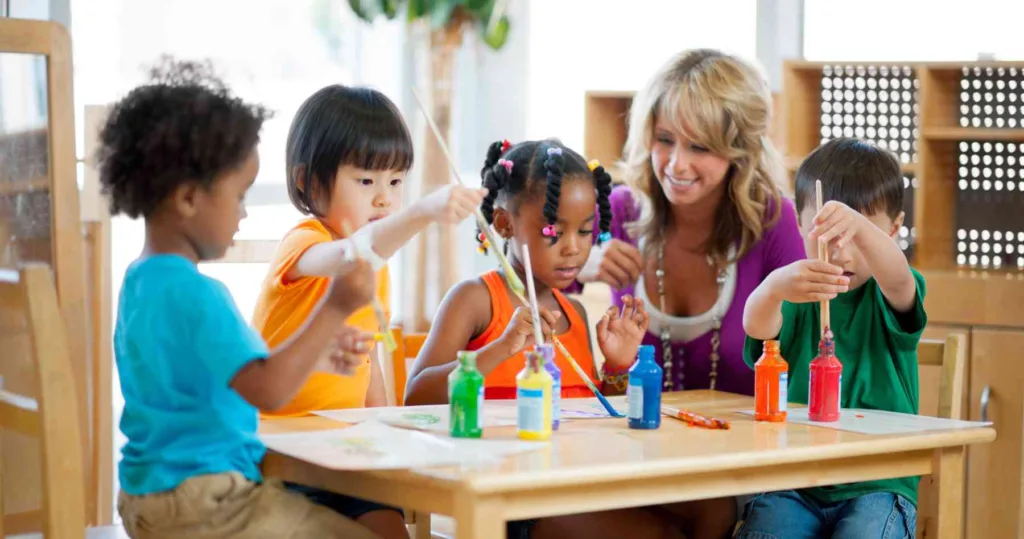
Applebee Kids: Fostering Emotional Development through Innovative Methods
Applebee Kids is a preschool program that is helping children develop emotional skills through a variety of innovative methods. The program offers a unique curriculum that focuses on building emotional intelligence in young children, including self-awareness, self-regulation, empathy, and social skills.
One way that Applebee Kids is helping children develop emotional skills is through its focus on social-emotional learning (SEL). The program uses evidence-based SEL strategies to teach children important skills such as recognizing and managing emotions, developing positive relationships, and making responsible decisions.
Applebee Kids also incorporates mindfulness practices into its curriculum to help children learn to regulate their emotions and reduce stress. Children learn to focus their attention, manage their thoughts and feelings, and respond to situations with more awareness and intention.
In addition, Applebee Kids places a strong emphasis on creating a nurturing and inclusive environment that fosters a sense of belonging for all children. The program celebrates diversity and encourages children to embrace their unique qualities while also fostering positive relationships with their peers.
Overall, Applebee Kids is helping children develop the emotional skills they need to succeed in school and in life. By providing a comprehensive approach to emotional development, the program is helping children build confidence, resilience, and a strong foundation for future success.
The importance of social-emotional development in early childhood
Social-emotional development is a critical component of early childhood development that sets the foundation for children’s emotional well-being, mental health, and overall success in life. Here are some reasons why social-emotional development is so important in early childhood:
Establishing Healthy Relationships: Early childhood is a time when children begin to form relationships with peers and adults outside of their family. By developing social-emotional skills such as empathy, communication, and conflict resolution, children can establish positive relationships and navigate social interactions more effectively.
Promoting Mental Health: Social-emotional development is closely linked to mental health. Children who have strong social-emotional skills are more likely to develop positive coping strategies, manage stress, and handle life’s challenges more effectively. In contrast, children who struggle with social-emotional development may be at risk for developing anxiety, depression, and other mental health issues later in life.
Enhancing Academic Success: Research has shown that children who have strong social-emotional skills are more likely to do well academically. This is because social-emotional skills help children regulate their behavior, pay attention in class, and develop positive relationships with teachers and peers.
Building Self-Esteem: Social-emotional development also plays a crucial role in building children’s self-esteem and sense of self-worth. By developing a positive self-concept and feeling good about themselves, children are more likely to take on new challenges, persevere through difficulties, and develop a growth mindset.
Overall, social-emotional development is a critical component of early childhood development that sets the stage for lifelong success. By supporting children’s social-emotional development, parents and educators can help children develop the emotional intelligence and resilience they need to thrive in all aspects of their lives.
